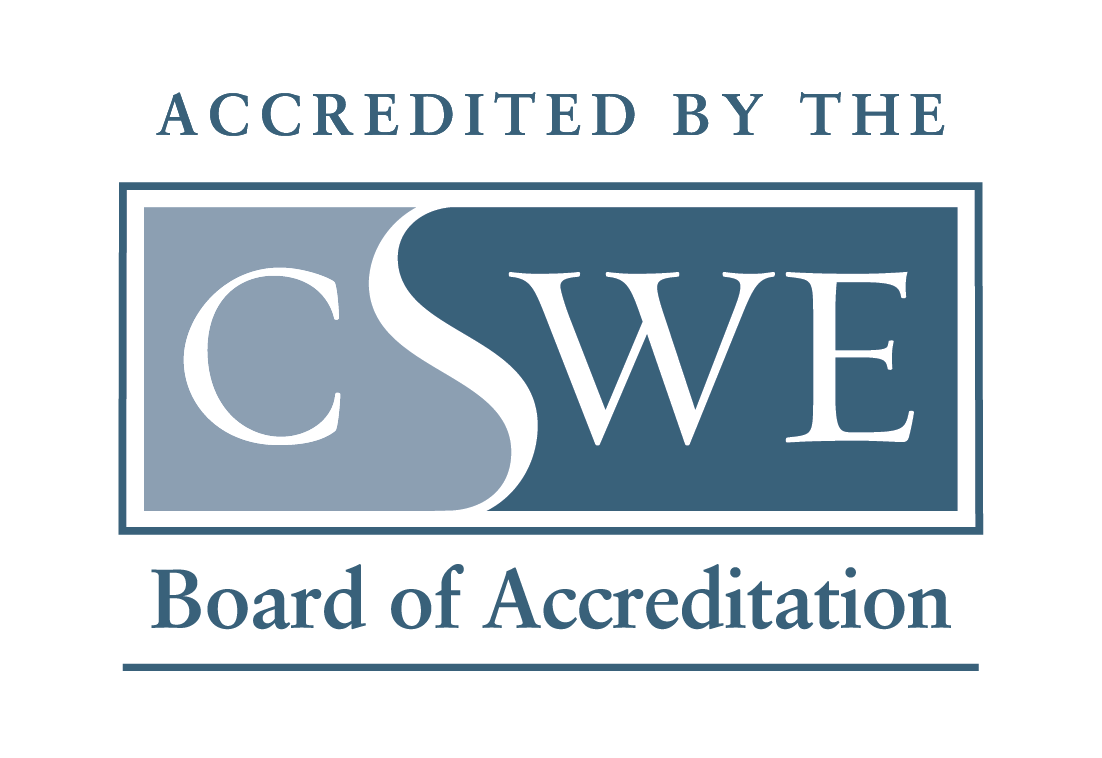Goals & Objectives
The BSW Program at A-State has four goals. Each of these goals consists of guiding principles for curriculum development and support program activities.
Goal 1: To prepare graduates for practice with individuals, families, groups, organizations, and communities.
Objective 1: Apply critical thinking skills within the context of generalist social work practice.
Objective 2: Demonstrate the professional use of self.
Objective 3: Apply the knowledge and skills of a generalist social work practice with systems of all sizes (individual, family, group, organization, and community).
Objective 4: Apply the knowledge of biological, psychological, sociological, and spiritual factors that affect the individual development and behavior, and use theoretical frameworks to understand the interactions between individuals as well as between individuals and various social systems.
Objective 5: Use communication skills differentially with a variety of client populations, colleagues, and members of the community.
Goal 2: Graduates will apply knowledge pertaining to the contexts of social work practice, the changing nature of those contexts, the behavior of organizations, the dynamics of change, and develop the skills necessary to become change agents.
Objective 1: Understand and interpret the history of the social work profession as well as its contemporary structures and issues.
Objective 2: Formulate, influence, and analyze the impact of social policies on client systems, workers, agencies, and communities.
Objective 3: Function within the structure of organizations and service delivery systems and seek organizational change when necessary.
Objective 4: Understand the value base of the profession and its ethical standards and principles, and practice accordingly.
Objective 5: Apply planned changed process in or among social work practice levels.
Goal 3: To infuse throughout the curriculum the values and ethics that guide professional social workers in their practice.
Objective 1: Understand the forms and mechanisms of oppression and discrimination and the strategies of advocacy and social change that advance social and economic justice.
Objective 2: Practice within the value and ethics of the social work profession and with an understanding of and respect for the positive value of multiple dimensions of diversity, including age, class, color, culture, disability, ethnicity, family structure, gender, marital status, national origin, race, religion, sex, and sexual orientation.
Objective 3: Evaluate research studies and apply research findings to practice, and under supervision, to evaluate their own practice interventions and those of other relevant systems.
Goal 4: Graduates of the BSW Program will understand their responsibility to continue their
professional development.
Objective 1: Demonstrate the ability to plan for and implement appropriate lifelong professional development activities including maintaining appropriate professional credentials.
Objective 2: Demonstrate an ability to assess and incorporate new knowledge and skills for competent generalist practice.
Objective 3: Use supervision and consultation appropriate to generalist practice.
Core Values
The core values embraced by the A-State Social Work Department are the shared values of the social work profession throughout history and are the foundation of this program and social work’s unique
purpose and perspective. These six values are:
- Service
- Social justice
- Dignity and worth of the person
- Importance of human relationships
- Integrity
- Competence






